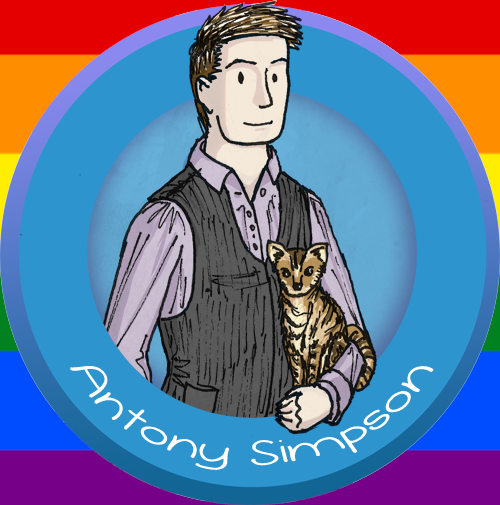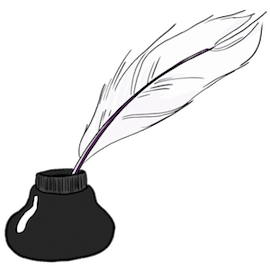In this three part blog post series, I’ll be sharing some of what I’ve learned about creative writing over the last few years.
I want to start this blog post with a short video, which is just over a minute long. In this video Stephen King describes a magic moment after reading a book where you think to yourself: This really sucks. I can do better than this. This magic moment is usually the trigger for someone starting to write creatively. But what drives a Writer is a need or deep desire to tell a story.
| 1. The Idea The idea should be imaginative and well thought out. No idea is orignal, everything has been done. But what makes new literature unique, is the Writer’s showing and telling of the story. The unique voice of the Writer. 2. Scope & Size
|
I would add in word counts for the following:
Blog Posts – Up to 1,500 words
Flash Fiction – 200-300 words
Poems – Unknown, but generally quite short.
Music Lyrics – Unknown.
If journalism is your thing, online magazine The Gay UK has submission guidelines for word counts. They are as follows and likely to be inline with industry standards:
Reviews: 300 – 500 words
Interviews: 1000 – 2500 words
Columns: 400 – 1000 words
News item: 500 – 900 words
Top List: 300 – 500 words
These word counts are not set in stone, you are allowed to be a little under or be a little over. But if you are hundreds, or even thousands of words over, then the scope of your idea is either too big or you are likely to have overwritten and will need to cut in the editing. Editing will be discussed in detail in the next blog post of the series.
If you are planning to submit a piece of creative writing somewhere, ensure you know the word count limits before you start and adhere to the word count. It is unlikely that the person or people reading submissions will read a piece of work over their stated word count. No matter how good it is.
Next let’s discuss essential elements of any story.
3. Characters
Characters should be:
- Believable.
- Interesting.
- Flawed.
- Have room for growth and grow throughout the story, or the part of the story that they are in.
- Be three dimensional and as complex as any person that you know.
Characters don’t have to be likeable or liked by the reader. In books that I’ve read, some of my favourite characters are bastards. If people read your work and care for your characters, you’re doing well. If readers are disinterested, don’t care, are irritated or frustrated by your characters, then you have some more character development work to do.
4. Storyline / Plot
Every story should have a Beginning, Middle and End. There needs to be conflict and resolution. Plot should be captivating. It should not have long periods where nothing happens. Be aware of genre conventions. It’s okay to make the reader work for the story, but don’t make them have to work too hard. Bare in mind The Seven Basic Plots:
- Overcoming the Monster
- Rags to Riches
- The Quest
- Voyage and Return
- Comedy
- Tragedy
- Rebirth
A great article on plots, one that I would recommend every Creative Writer should read is The “Basic” Plots in Literature.
5. Research
If your story is set in the past, another country, or has a character with specialist knowledge you as the Writer need to do the research. You need to make yourself an expert in subject matters related to your story. Although you need to be an expert, you don’t need to show or tell the reader everything that you know.
6. Perspective
The choice of perspective is really important when writing any story. You can show and tell the story from character’s perspective, omniscient perspective or from several perspectives. A good article on perspectives is available here: The Writers Craft – Point of View in Literature.
7. Pacing
Pacing is bit of an art. Elongated sentences with detailed description helps to slow down a scene. Whereas, short. Sharp. Snappy sentences speed up scenes. Short sentences are ideal for action scenes.
8. Other Tips
You should write lots. Every day if possible. Writing, like anything, people get better at the more they practice it.
Get the show and tell balance right. Generally show more than you tell.
Your story should have hooks, things that grab the readers attention and encourage your reader to read on.
As a Writer you should read lots. Especially in the genre you wish to write in. If you’re unsure what genre you want to write in or type of story you want to write, read a variety. But don’t just passively read. Study the things you read. Look at the elements mentioned above, along with what you liked and disliked about the work. Try to understand:
- What did the Writer do? Did they do it well or not?
- Where in the piece of work did the Writer do what they did?
- Why the Writer might have done what they did?
- How did the Writer do what they did?
In the next blog post of the series, I’ll be writing about keeping going, the development of the Writer’s voice and the importance of backing-up your work.
Want to share your thoughts on writing? Leave a comment below.
Write soon,
Antony


